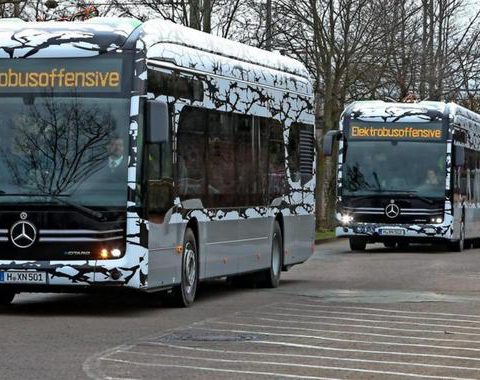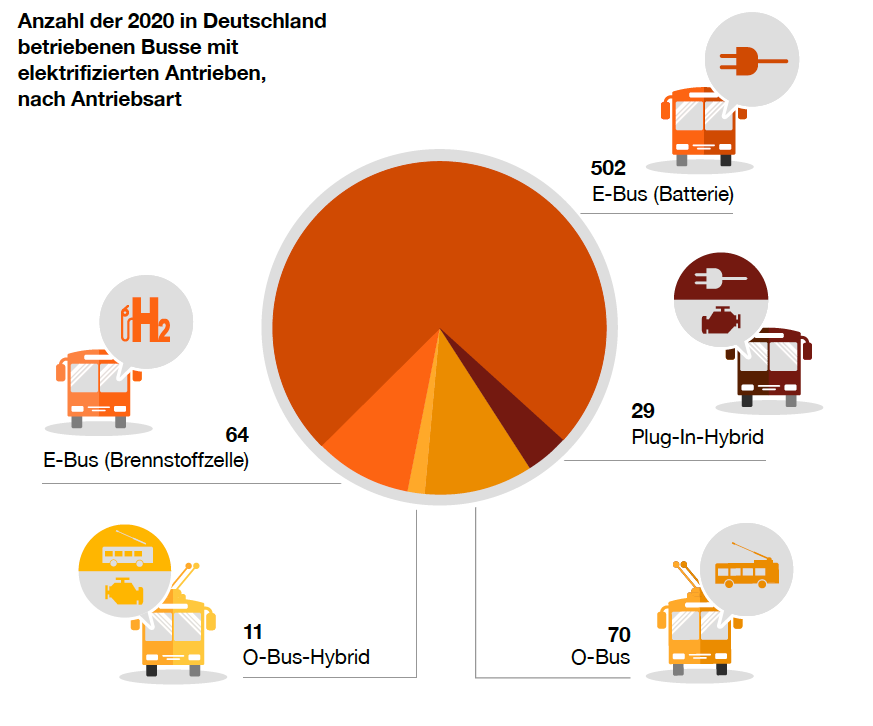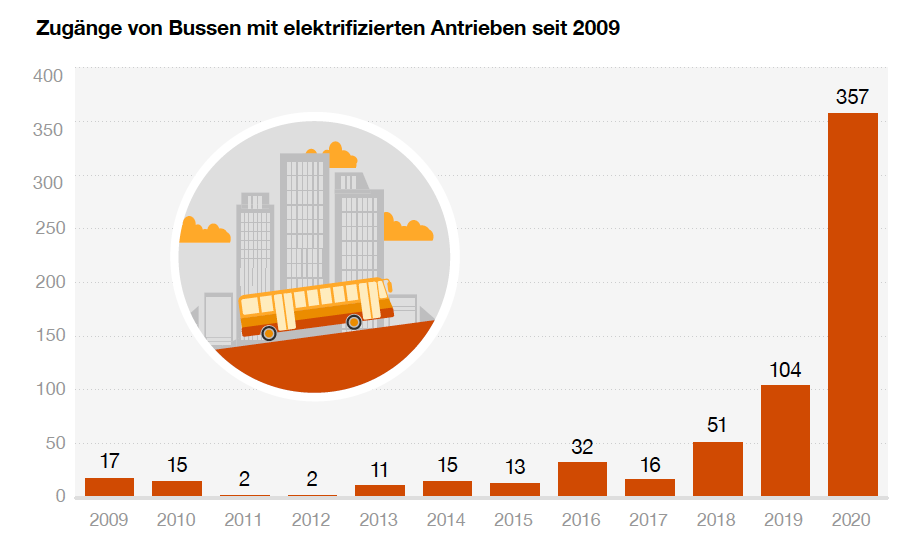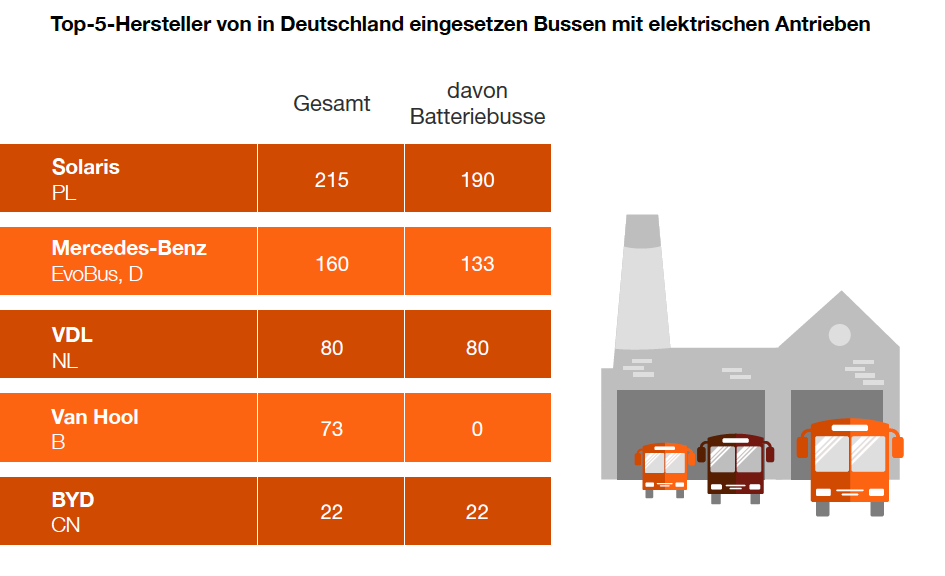Electric buses in Germany, the acquisition of 3,100 new units is already planned, PwC says
676 e-buses were in operation in Germany at the end of 2020 (over half of them were registered in 2020). And the purchase of further 3,100 e-buses is already planned. And there are already concrete, publicly known plans for a further almost 4,800 e-buses. Such figures are collected in the lately published “E-bus Radar” by […]

676 e-buses were in operation in Germany at the end of 2020 (over half of them were registered in 2020). And the purchase of further 3,100 e-buses is already planned. And there are already concrete, publicly known plans for a further almost 4,800 e-buses.
Such figures are collected in the lately published “E-bus Radar” by the consulting firm PricewaterhouseCoopers (PwC).
Solaris, Mercedes (EvoBus) and VDL accounts for the vast majority of the registrations, but things are set to change in the short term as the production of the MAN Lion’s City E started last year.
In the course of the 2020s, PwC expects a significant surge in orders: plans are already known for a further 3,089 e-buses by the middle of the decade.
For the next five years, the acquisition of around 3,100 e-buses is already planned, of which more than 200 will be fuel cell powered. There are known plans for longer-term purchases of around 4,800 electrically powered buses
Maximilian Rohs, Senior Manager Infrastructure & Mobility at PwC Germany
German electric bus market switches gear
Today around 1,4% of the German public transport bus fleet is electrically powered (the total bus fleet is the country is made of around 50,000 vehicles).
Data from PwC shows that German e-bus market is consistently speeding up: in 2017 there were 16 new e-bus registrations; in 2018, the figures tripled to 51. In 2019, there were more than twice as many (104): it was a watershed year for the e-bus market in Europe. Germany has been slower than other countries to scale up: with 357 new e-bus registrations, 2020 reached the highest level to date.

Among the federal states that use buses with electrificated drives, North Rhine-Westphalia (177), Berlin (137) and Baden-Württemberg (76) currently occupy the first three places.
They are followed by Lower Saxony (62), Hesse (61), Hamburg (58) and Bavaria (47). In the remaining federal states, there are a total of 58 buses with electric powertrain propulsion.
Solaris, Mercedes and VDL have the lion’s share
Beyond the 502 battery-electric buses, German roads witness the operation of 81 trolleybuses and 64 fuel cell buses. Most of the trolleybuses (54) are in Solingen, as in 2019. Esslingen (16 trolleybuses) and Eberswalde (11 trolleybuses) follow in second and third place at a considerable distance.

As of end 2020, PWC reports highlights that five manufacturers share over 80 percent of the German market. Solaris, Mercedes (EvoBus) and VDL are today the three top manufacturers in the German market: the Polish producer has 215 e-buses delivered (BVG Berlin takes the lion’s share), Mercedes follows with 160, then VDL with 80.
Fuel cell buses in Germany
Fuel cell hydrogen buses also becoming increasingly common in German cities, PwC observes.
The city of Cologne (including the surrounding area) is at the forefront in the whole Europe with a fleet of 37 fuel cell buses. Wuppertal has ten and Höchst eight of these buses. But in the long term, the fleet is set to grow considerably: according to the E-bus Radar, a further 345 buses of this type are to be procured by 2030.
In this respect, PwC assumes a drive mix in German public transport in the future that takes the respective local conditions into account in the best possible way.








